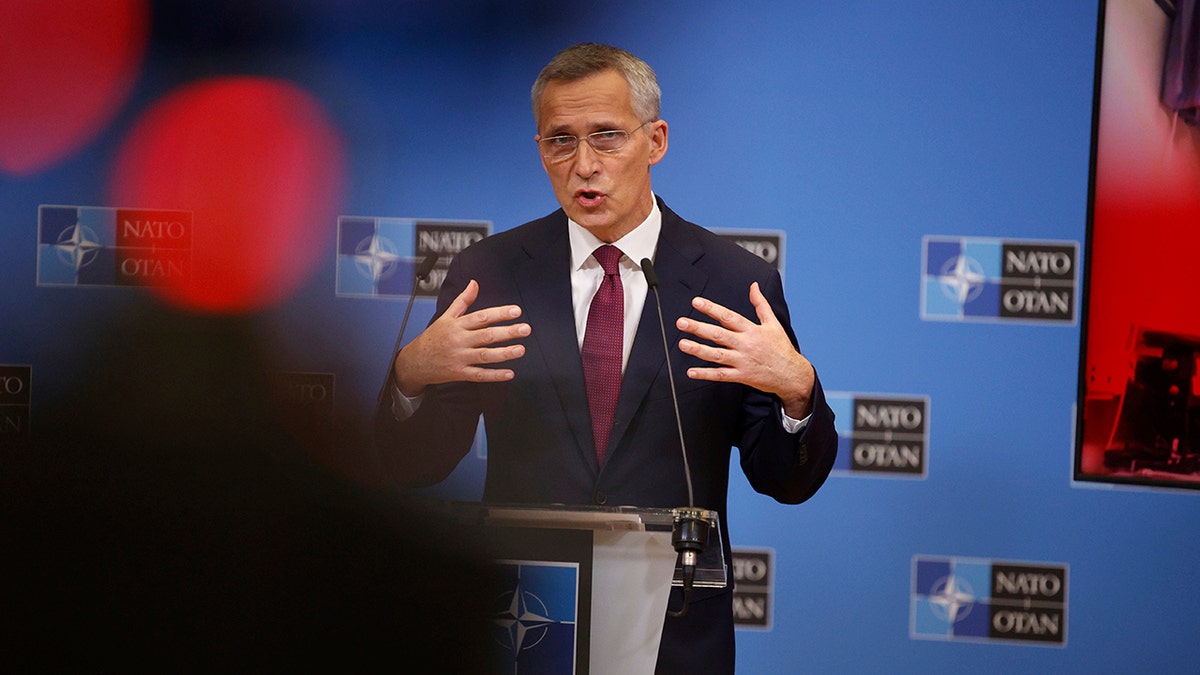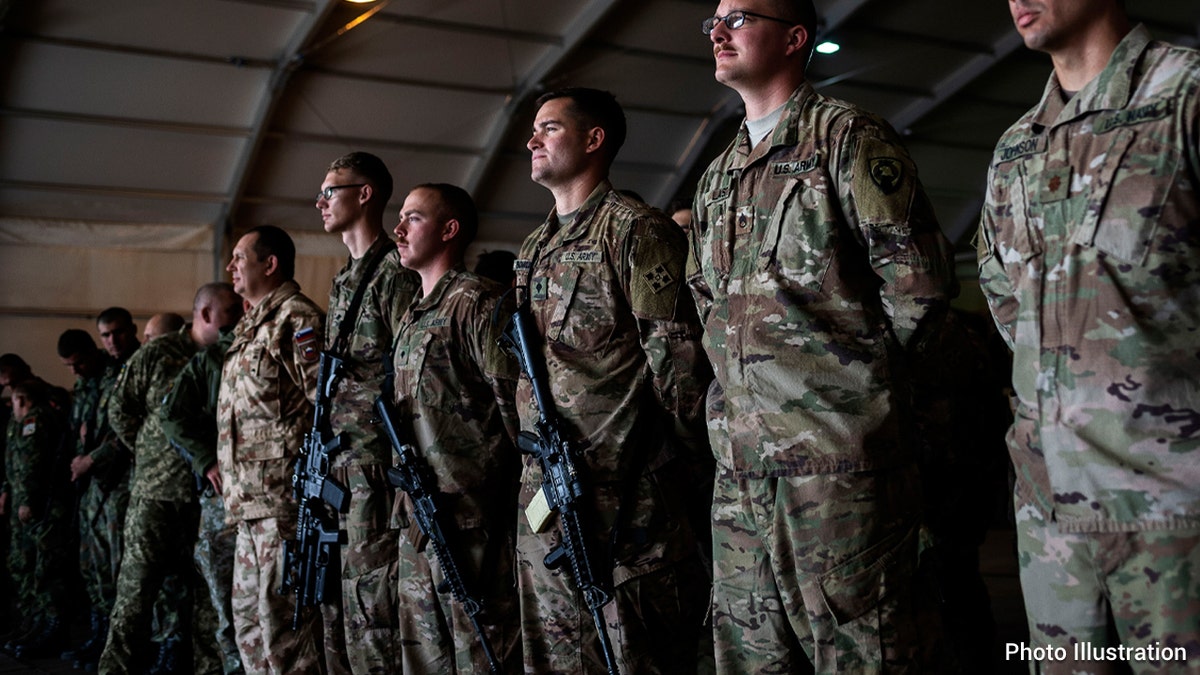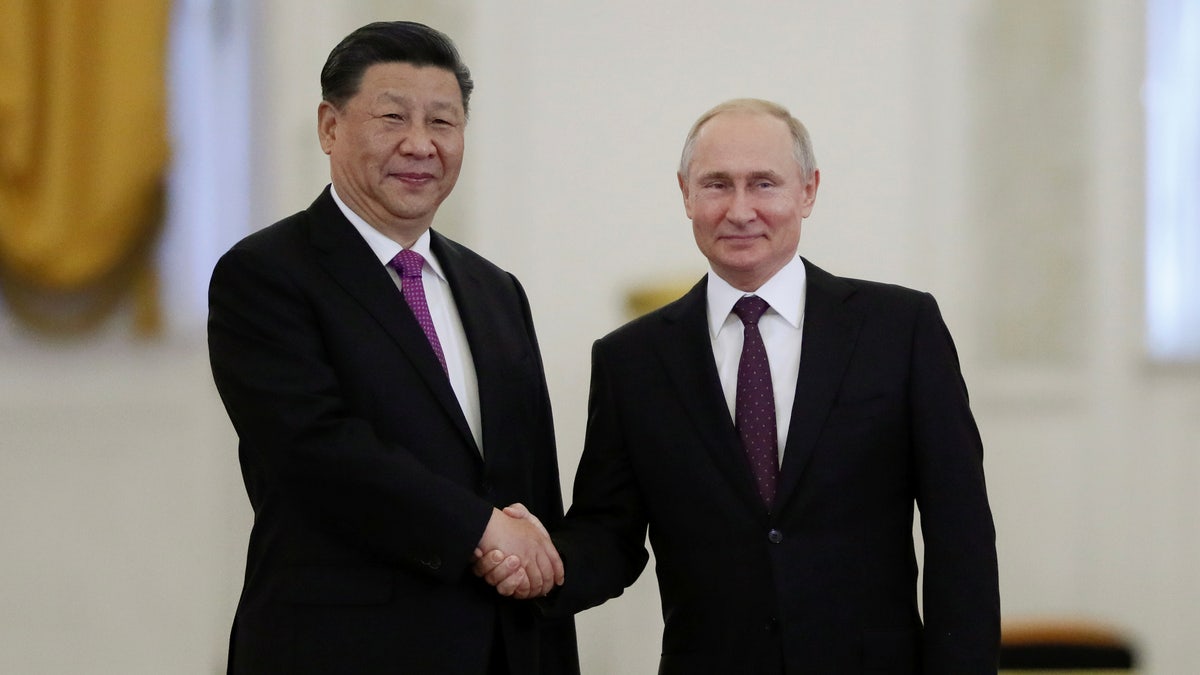Fox News Flash top headlines for January 28
Fox News Flash top headlines are here. Check out what's clicking on Foxnews.com.
NATO Secretary-General Jens Stoltenberg warned Friday that a strong alliance amongst member nations is more "important than ever" amid mounting threats from China and Russia.
"What we see are that Russia and China are becoming closer and closer," he told Margaret Brennan during an Atlantic Council event. "They exercise together, they operate together, they stand together more and more in the U.N.
"These are two authoritarian regimes that do not share our values," he continued. "They crack down on democratic opposition in their respective countries. All of us who believe in the rule of law and democracy and the freedom of the press, we need to stand together."

NATO Secretary General Jens Stoltenberg speaks to the press ahead of a meeting of NATO Foreign Affairs Ministers to be held on Nov. 30-Dec.1, at the NATO headquarters, in Brussels, Belgium, Friday, Nov. 26, 2021. (AP Photo/Olivier Matthys)
NATO ALLIES SEND DEADLY WEAPONS, MUNITIONS TO UKRAINE WHILE GERMANY SENDS 5K HELMETS
Stoltenberg said the importance of a NATO alliance is not just vital for European security but as a source of global stability.
The NATO chief said that together, the U.S. and the 29 other member nations, represent 50 percent of the world’s "economic might" and military power – a strength that is needed to combat mammoth nations like China and Russia.
While Russia’s military capabilities rival that of the U.S., the size of China’s population – a whopping 1.4 billion people compared to the U.S.’s roughly 330 million – lends to its sheer manpower capabilities.
"China will soon have a bigger economy than the United States. They already have the largest defense budget," Stoltenberg said. "They are leading within many technologies, like parts of artificial intelligence, parts of quantum computing, and they will have the biggest navy in the world.
"It is a great advantage for the United States to have something that China and no other major power has – and that is many friends and allies," he continued.
"It’s good to have friends. It’s good to have allies."
The secretary-general said NATO’s core principle of "one for all, all for one," has made the post-WWII coalition the "strongest alliance in history."

U.S. Army soldiers attend as NATO Secretary General Jens Stoltenberg visits the Italian-run military base "Camp Arena" to meet the soldiers in the context of the Nato Resolute Support (RS) mission. (Photo by Antonio Masiello/Getty Images)
NATO has the ability to mobilize a military force of roughly 3.5 million troops and civilian personnel, but the alliance has faced some criticism for refusing to fall back on this force posture to deter Russia from invading Ukraine.
Both NATO and the U.S. have refused to deploy troops to Ukraine as it is not a member nation, but an increased troop presence has been established in surrounding Baltic nations as a precaution.
Nations like the U.S., U.K. and Canada have sent additional military aid and defensive weaponry to Ukraine to help arm itself from a potential Russian incursion.
NATO has additionally provided support to strengthen Ukraine’s cyber defenses and threatened to slap Russia with crippling sanctions should it violate Kyiv’s sovereignty.

Russian President Vladimir Putin shakes hands with his Chinese counterpart Xi Jinping at the Kremlin in Moscow, Russia.
CLICK HERE TO GET THE FOX NEWS APP
The U.S. and NATO have said it awaits Russia’s decision on whether it will follow a path of diplomacy or take combative action.
"We are ready to engage in political dialogue, but we’re also ready to respond if Russia chooses an armed conflict," Stoltenberg warned Friday.









































